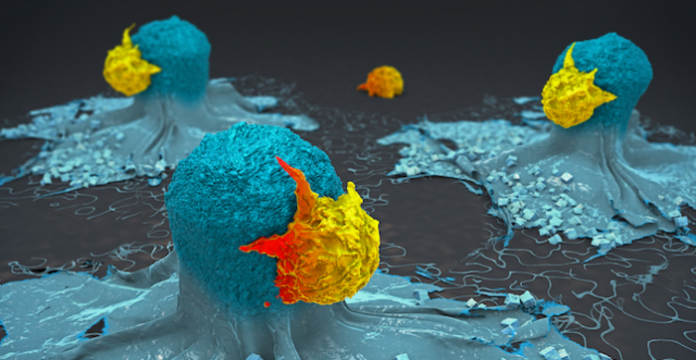
BioNTech’s goal of developing a cancer vaccine was boosted by positive results from a Phase II trial of its investigational mRNA immunotherapy BNT111 in combination with Regeneron’s PD-1 checkpoint inhibitor cemiplimab in advanced melanoma. The trial met its primary efficacy outcome measure with a statistically significant improvement in overall response rate (ORR) in patients treated with the combination.
“These Phase II results mark a significant step towards our vision of personalized cancer medicine. We envision mRNA as a centerpiece in future treatment paradigms for cancer, helping to address unmet medical needs, such as for patients with anti-PD-(L)1 refractory or resistant melanoma,” said Özlem Türeci, MD, CMO and co-founder of BioNTech.
Melanoma is amongst the leading causes of cancer-related deaths globally, leading to an estimated 58,000 deaths yearly. Anti-PD-1 refractory/relapsed unresectable Stage III or IV melanoma is an aggressive form of melanoma, which remains particularly lethal.
The Phase II clinical trial (EudraCT No.: 2020-002195-12; NCT04526899) is in patients with unresectable stage III or IV melanoma whose disease had progressed following anti-PD-(L)1-containing treatment. The trial is evaluating the clinical activity and safety of the BNT111/Libtayo combination, as well as assessing the two single agents alone. It will continue as planned to further assess the secondary endpoints, which were not mature at the time of the primary analysis.
The ORR in the cemiplimab monotherapy arm was in line with the historical control of anti-PD-(L)1 or anti-CTLA-4 treatments in this patient group. The treatment was well tolerated and the safety profile of BNT111 in combination with cemiplimab in this trial was consistent with previous clinical trials assessing BNT111 in combination with anti-PD-(L)1-containing treatments.
“These data are a proof of concept for us in three dimensions: First, for our decade-long improved mRNA cancer vaccine technology that uses uridine mRNA chemistry, a non-coding backbone that is engineered for optimal translational performance and our proprietary lipoplex formulation for delivery. Second, for our computational approaches for selecting suitable tumor antigens for our cancer indication-specific FixVac platform candidates. Third, for our strategy to combine synergistic modalities, in this case BNT111 with an established immune checkpoint treatment,” said Türeci.
BioNTech and Regeneron plan to present data from this trial at a forthcoming medical conference. Further, the companies also intend to submit these data for publication in a peer reviewed scientific journal.
BNT111 is an mRNA-based off-the-shelf cancer immunotherapy candidate for intravenous administration encoding a fixed set of four non-mutated melanoma-associated antigens (NY-ESO-1, MAGE-A3, tyrosinase, and TPTE) delivered as uridine mRNA-lipoplex formulation. Over 90% of patients with cutaneous melanomas express at least one of these antigens. It is based on the company’s FixVac (Fix Combination Vaccine)platform.
BioNTech has two main oncology platforms. Its FixVac platform candidates target specific cancer indications focusing on tumor-associated antigens which are shared by many cancer patients, while its NeST (Individualized Neoantigen Specific Immunotherapy) platform candidates are personalized immunotherapies tailored to the patient’s individual tumor profile. Both platforms use BioNTech’s proprietary optimized uridine mRNA (“uRNA”) technology and the lipoplex (“LPX”) delivery technology.





